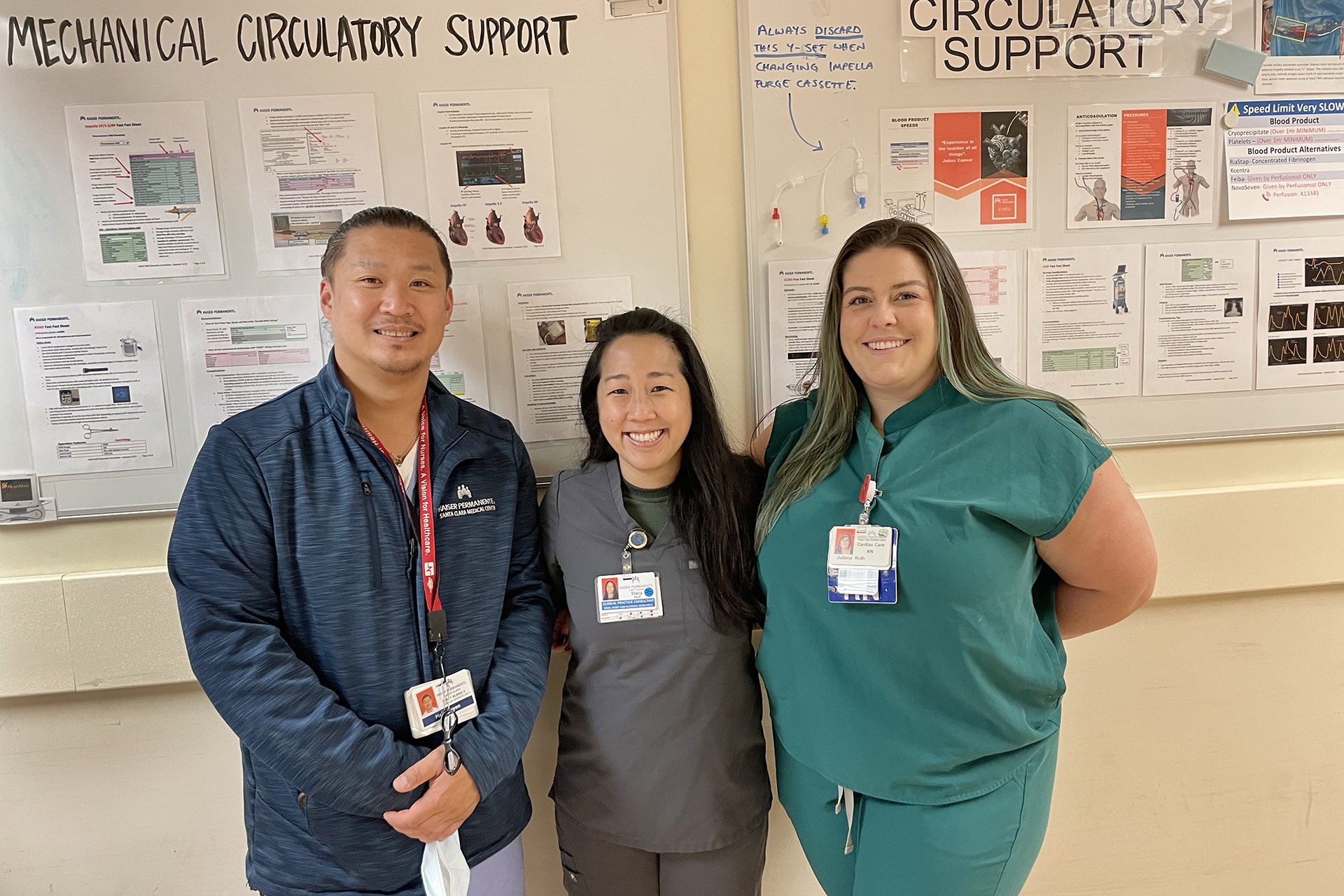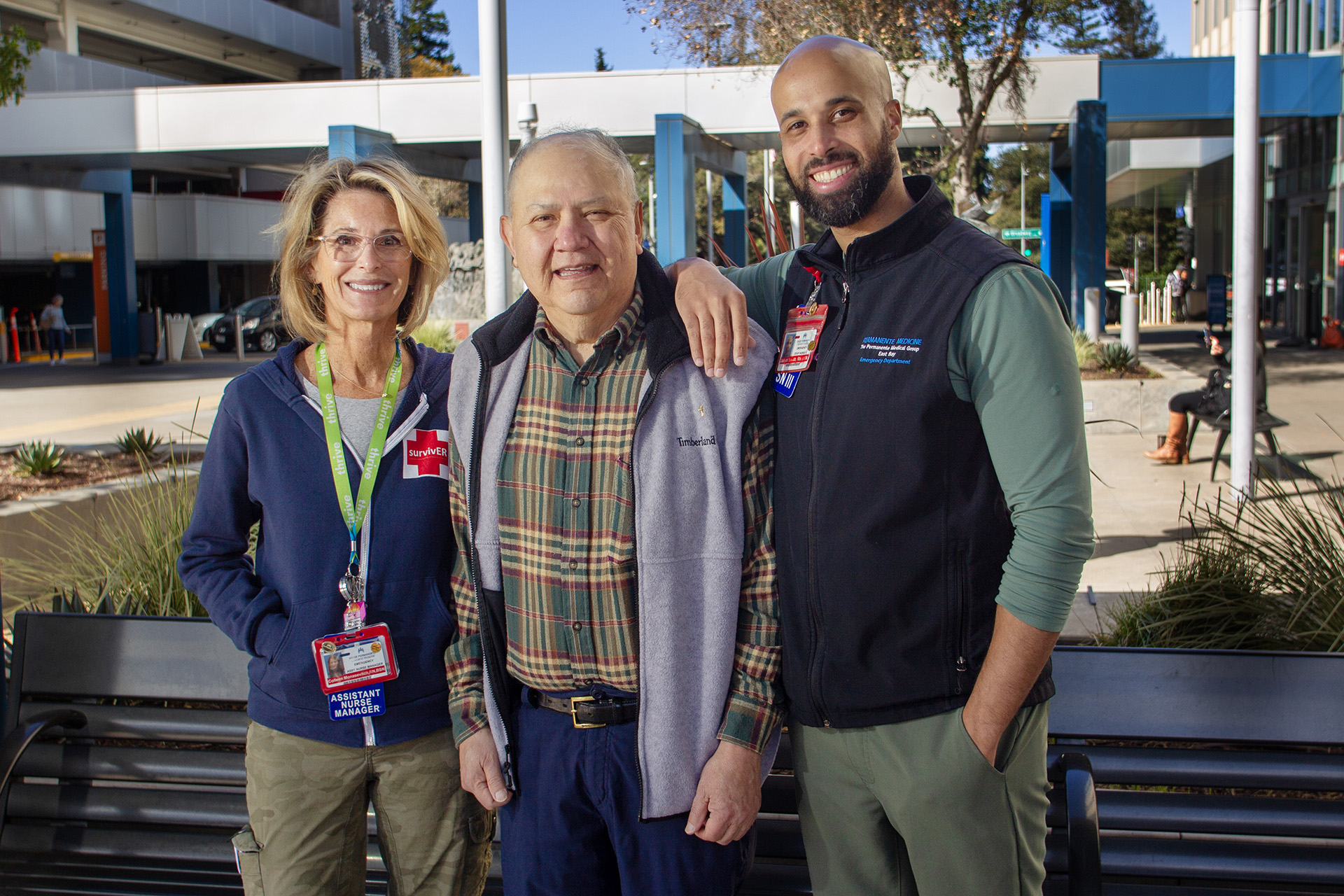Juliana Ruth, RN, goes to her job in the cardiovascular intensive care unit each day knowing things could be intense.
Sometimes her patients at the Kaiser Permanente Santa Clara Medical Center wake up from life-saving emergency heart surgery after having been on the cusp of death.
Now she and her colleagues must make sure that their patients survive and go home to their families.
Out of her comfort zone
“In the training I received at Kaiser Permanente, I learned about being out of my comfort zone and still going forward,” said Ruth. “I had to learn about being comfortable with being uncomfortable.”
Ruth is among a handful of Kaiser Permanente nurses with cardiac care experience trained to work in the cardiovascular ICUs in Santa Clara and San Francisco medical centers where the most complicated heart surgeries are performed in the Kaiser Permanente Northern California region.
The training is 14 to 16 weeks, said Hai Nguyen, RN, who like Ruth was trained to work in the cardiovascular ICU after working in a cardiac care unit that cares for recovering patients stable enough to leave the cardiovascular ICU.
Nguyen and Ruth are trained in how to care for critically ill patients who have received an implanted ventricular assist device that helps the heart pump blood, or have had a heart valve replacement, a coronary artery bypass, or a pacemaker, among other procedures.
Some of their patients are connected to a life support machine that helps them breathe and pumps their blood.
Teamwork ‘like a symphony’
The care for patients who may have their hearts or lungs connected to a variety of life-saving devices must be efficient and precisely choreographed.
“The amount of work we do is not for the faint of heart,” said Nguyen. “Sometimes we have 3 or 4 nurses working on one patient just to get them stabilized, all the while making sure none of the tubes coming from their neck, chest, or groin are dislodged. We have to work in unison, like a symphony.”
The Kaiser Permanente Santa Clara and San Francisco medical centers perform close to 4,000 cardiac procedures each year, which is about 80% more than Stanford Health Care and more than double the number performed by Sutter Medical Center.
Highly skilled nurses
“Finding experienced nurses to care for this population of patients is difficult because the knowledge and experience needed to do it are so specialized and because the nurses are caring for extremely critically ill patients around the clock,” said Benson Yeung, Kaiser Permanente regional director of Patient Care Services.
Stacy Hull, a clinical nurse specialist and Kaiser Permanente regional clinical practice consultant, trained both Ruth and Nguyen, who were among several groups of cardiovascular ICU nurses who completed the program over the last 3 years. The importance of the work the nurses perform daily cannot be understated both clinically and psychologically, she said.
Passion, dedication
“Our nurses often form really strong connections to our patients,” said Hull. Some patients can stay in the cardiovascular ICU for a long time. The nurses pour their hearts and souls into their care and take care of these patient like their own family. The best feeling is seeing these patients discharged and they come back to visit. The nurses know that the team helped give them a second chance at life.”
Nguyen said he is proud to help his community take care of “the sickest of the sick that you will see in a hospital.”
“This job is no walk in the park, and sometimes we are mentally drained,” said Nguyen. “We dedicate our time to Kaiser Permanente away from our families, sometimes for very long hours and many days in a row to make sure these patients can go home. But I feel like it is my calling.”




